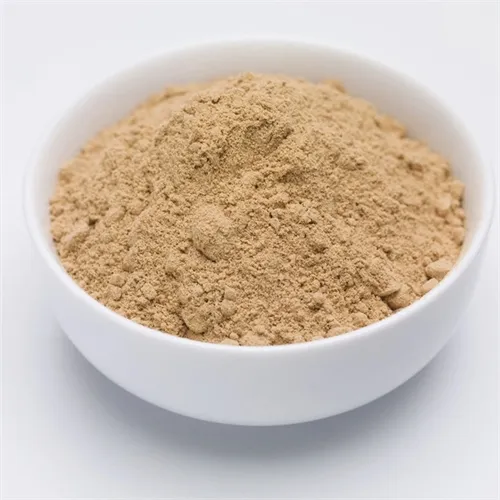Warning: Undefined array key "title" in /home/www/wwwroot/HTML/www.exportstart.com/wp-content/themes/1198/header.php on line 6
Warning: Undefined array key "file" in /home/www/wwwroot/HTML/www.exportstart.com/wp-content/themes/1198/header.php on line 7
Warning: Undefined array key "title" in /home/www/wwwroot/HTML/www.exportstart.com/wp-content/themes/1198/header.php on line 7
Warning: Undefined array key "title" in /home/www/wwwroot/HTML/www.exportstart.com/wp-content/themes/1198/header.php on line 7
- Afrikaans
- Albanian
- Amharic
- Arabic
- Armenian
- Azerbaijani
- Basque
- Belarusian
- Bengali
- Bosnian
- Bulgarian
- Catalan
- Cebuano
- China
- China (Taiwan)
- Corsican
- Croatian
- Czech
- Danish
- Dutch
- English
- Esperanto
- Estonian
- Finnish
- French
- Frisian
- Galician
- Georgian
- German
- Greek
- Gujarati
- Haitian Creole
- hausa
- hawaiian
- Hebrew
- Hindi
- Miao
- Hungarian
- Icelandic
- igbo
- Indonesian
- irish
- Italian
- Japanese
- Javanese
- Kannada
- kazakh
- Khmer
- Rwandese
- Korean
- Kurdish
- Kyrgyz
- Lao
- Latin
- Latvian
- Lithuanian
- Luxembourgish
- Macedonian
- Malgashi
- Malay
- Malayalam
- Maltese
- Maori
- Marathi
- Mongolian
- Myanmar
- Nepali
- Norwegian
- Norwegian
- Occitan
- Pashto
- Persian
- Polish
- Portuguese
- Punjabi
- Romanian
- Russian
- Samoan
- Scottish Gaelic
- Serbian
- Sesotho
- Shona
- Sindhi
- Sinhala
- Slovak
- Slovenian
- Somali
- Spanish
- Sundanese
- Swahili
- Swedish
- Tagalog
- Tajik
- Tamil
- Tatar
- Telugu
- Thai
- Turkish
- Turkmen
- Ukrainian
- Urdu
- Uighur
- Uzbek
- Vietnamese
- Welsh
- Bantu
- Yiddish
- Yoruba
- Zulu
Sep . 25, 2024 19:25 Back to list
aspartame and pku
Aspartame and PKU Understanding the Connection
Aspartame, a low-calorie artificial sweetener, has been a subject of debate since its introduction in the 1980s. Approved by various regulatory bodies, including the FDA, as safe for consumption, aspartame is widely used in a range of food and beverage products. However, it poses specific risks for individuals with a rare genetic disorder known as Phenylketonuria (PKU). This article explores the relationship between aspartame and PKU, shedding light on both the sweetener's composition and its implications for affected individuals.
What is Aspartame?
Aspartame is composed of two amino acids, phenylalanine and aspartic acid, and a methanol molecule. When consumed, aspartame is broken down in the body into these components. The safety of aspartame is primarily based on studies that have demonstrated it does not pose health risks for the general population when consumed within established limits. However, since phenylalanine is one of its breakdown products, individuals with PKU must avoid aspartame completely.
Understanding PKU
Phenylketonuria (PKU) is an inherited metabolic disorder caused by a deficiency of the enzyme phenylalanine hydroxylase. This enzyme is crucial for metabolizing phenylalanine, one of the amino acids found in many protein-containing foods. When individuals with PKU consume foods high in protein or sweeteners like aspartame, their bodies cannot process phenylalanine effectively, leading to its accumulation in the bloodstream. Elevated levels of phenylalanine can result in severe neurological damage, intellectual disabilities, and other serious health issues.
The Risk of Aspartame for PKU Patients
For people with PKU, consuming aspartame can lead to dangerous spikes in phenylalanine levels. Since aspartame contains phenylalanine, its consumption can be particularly harmful, making it vital for individuals with PKU to read labels and avoid products containing the sweetener. In the United States, products containing aspartame are legally required to carry a warning label for those with PKU, informing them of the potential risks.
aspartame and pku

Dietary Management
Managing PKU requires a lifetime commitment to a strict diet, low in phenylalanine. This often involves avoiding high-protein foods such as meat, fish, eggs, dairy products, nuts, and certain grains. Many individuals with PKU also include specially formulated low-protein products and amino acid supplements in their diets to meet their nutritional needs.
The Food and Drug Administration (FDA), along with other health organizations, recommends that individuals with PKU be vigilant about reading product labels for ingredients and warnings. Aspartame is found in a variety of products, including diet sodas, sugar-free gum, and various sugar substitutes, necessitating careful monitoring of consumption.
Conclusion
Aspartame serves as a popular alternative to sugar, offering a sweet taste without the added calories. However, for individuals affected by PKU, aspartame poses a significant health risk due to its phenylalanine content. Understanding the relationship between aspartame and PKU is critical for managing this condition effectively.
The importance of education and awareness cannot be overstated. Individuals with PKU, their families, and caregivers should be informed about the implications of consuming products that contain aspartame. Public health messages and labeling practices play a crucial role in helping to protect those who are susceptible.
Ultimately, while aspartame continues to be deemed safe for general consumption, its potential dangers for people with PKU highlight the necessity for continued vigilance and care. Dietary management remains a cornerstone of care for individuals with this condition, ensuring they lead healthy lives while avoiding the risks associated with phenylalanine exposure.
In summary, aspartame's sweet allure is not worth the potential risk for individuals with phenylketonuria. Such individuals must remain aware of their dietary choices, avoiding aspartame to maintain their health and well-being. Through informed decisions and suitable dietary practices, those with PKU can successfully navigate their unique nutritional challenges while enjoying a fulfilling lifestyle.
Latest news
-
Certifications for Vegetarian and Xanthan Gum Vegetarian
NewsJun.17,2025
-
Sustainability Trends Reshaping the SLES N70 Market
NewsJun.17,2025
-
Propylene Glycol Use in Vaccines: Balancing Function and Perception
NewsJun.17,2025
-
Petroleum Jelly in Skincare: Balancing Benefits and Backlash
NewsJun.17,2025
-
Energy Price Volatility and Ripple Effect on Caprolactam Markets
NewsJun.17,2025
-
Spectroscopic Techniques for Adipic Acid Molecular Weight
NewsJun.17,2025

